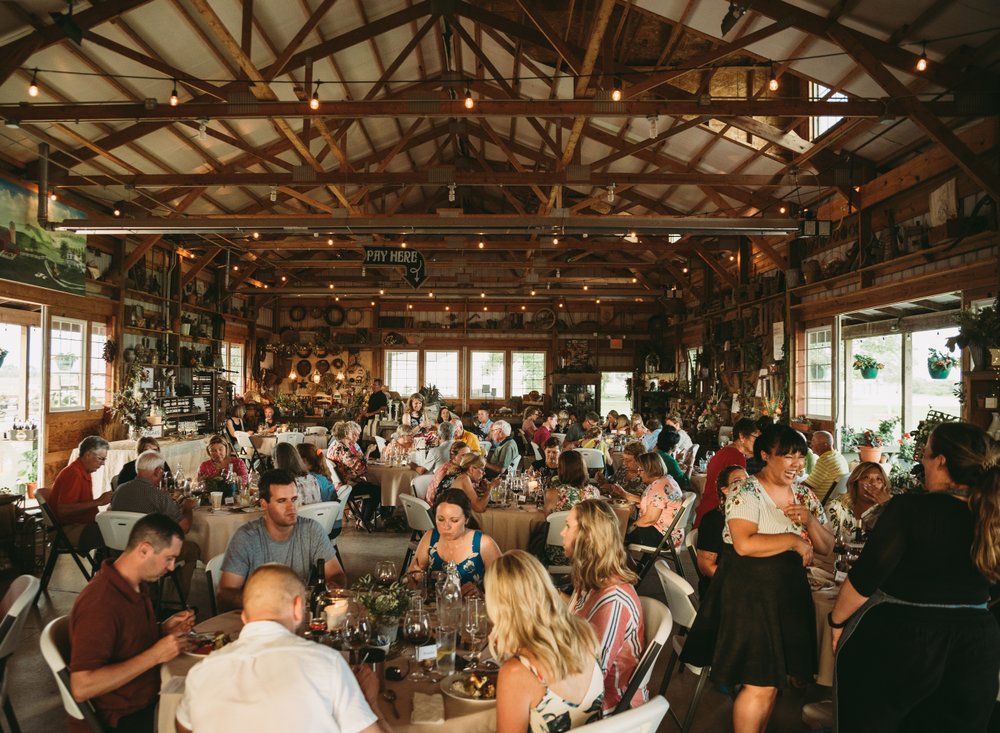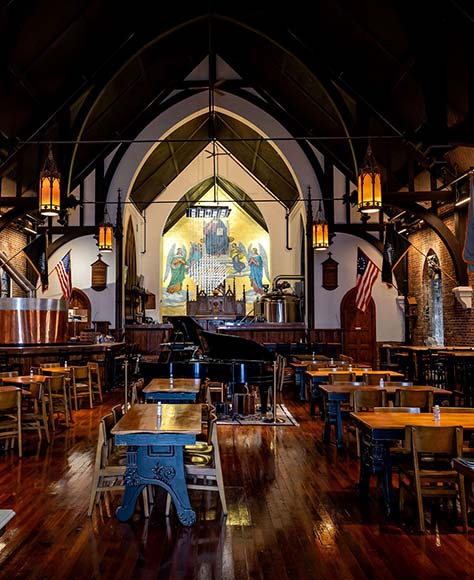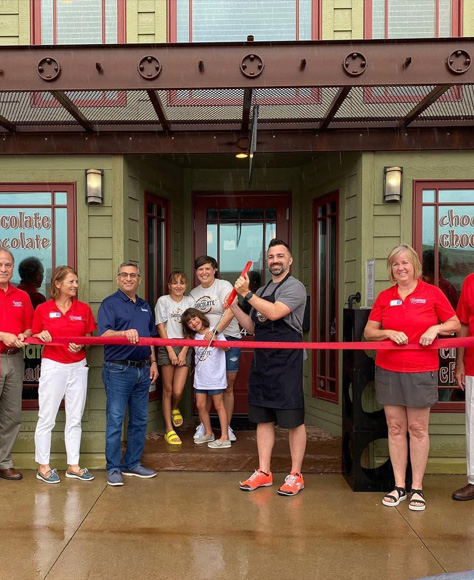In Iowa, farm-to-table isn’t a passing – or even a longstanding – trend. It’s a way of life here. The state’s vibrant agricultural heritage means restaurants across the state have easy access to fresh, local ingredients. That bounty of homegrown meat and produce inspires chefs from around the world to settle in the state and push the envelope of creative cuisine.
Take to the Trails
No, not hiking trails (though the state has plenty of those, too): We’re talking Cheese and Tenderloin trails. As a major dairy producer, Iowa’s dairies range from sophisticated, sprawling operations to family farms. To help whittle down the choices of where to go for cheese curds, cream-top milk, ice cream, and every sort of cow-, sheep-, and goat-milk cheese imaginable, turn to the Iowa Cheese Trail, which highlights 14 dairies and cheese mongers across the state that merit a visit.
The Tenderloin Trail also has diners crisscrossing Iowa, this time in search of the famed pork tenderloin sandwich: a center-cut pork loin pounded thin, breaded, fried and placed in a bun that’s far too small to contain all that pork goodness. Eat at 10 of the Trail’s 14 stops and nab a T-shirt commemorating the accomplishment.
Of course, man cannot live by cheese and pork sandwiches alone. Hungry travelers can also visit some of the 100 wineries, 75 breweries, 15 distilleries and nearly 6,400 eateries in the state, many of which serve food raised on local farms.
The Locavore Life
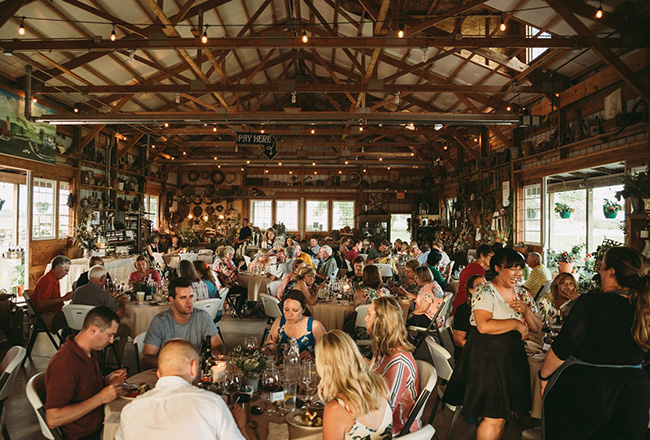
Harvestville Farm in Donnellson is one operation that’s kept the farm-to-table ethos entirely on the farm, thanks to its annual series of multicourse, chef-driven dinners. From April through August, chefs from across southern Iowa descend upon Harvestville’s retail barn, where they feed up to 60 guests who show up for live music and five courses crafted from just-picked produce.
“My husband and I are really big foodies,” says farm co-owner Julie Hohl. “We just love great food and great wine and the connections it brings. We’d heard years ago about the farm-to-table movement and wondered how in the world are we going to do it when we’re located so rurally? Then we thought, ‘We have the structure and garden; we just need the chef!’”
The couple hosted a single farm dinner in 2011; now, they hold nine or 10 a year. At the peak of the season, Hohl says, up to 90% of ingredients used in the dinners come from Harvestville Farm, which primarily grows produce. What the Hohls can’t grow, they source locally – including protein. The pair also tries to recruit some new chefs every year to mix things up for guests.
Farms across the state host farm-to-table dinners to show off their land’s bounty, including Grade A Gardens in Earlham and Lone Oaks Farm in Winterset. Orient’s Wallace Farm provides food for the nonprofit Wallace Centers of Iowa’s farm-to-table dinners in Des Moines as well as casual events like Pizza on the Prairie and history lessons over lunch in Orient; both utilize the veggies from the historic farm.
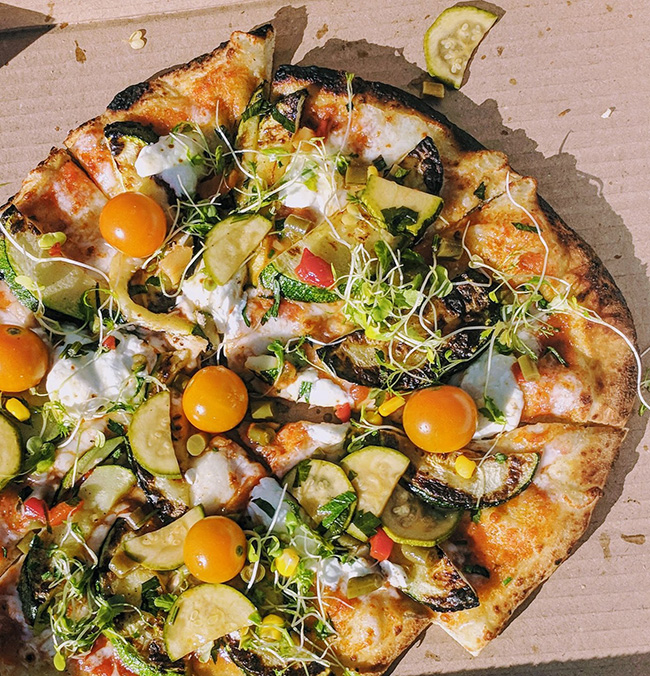
Even Iowa grocery stores make it a point to source local products. At Oneota Community Food Co-operative in Decorah, all produce is locally sourced unless it’s not available in winter, says deli manager Phil Jahnke Sauer.
“Even in the winter we get tomatoes from Mason City and lettuce from Wisconsin or Cedar Falls,” he says. (The co-op considers producers within 100 miles to be local, which includes parts of Wisconsin and Minnesota.) Turkey and beef from nearby producers stock the deli’s shelves.
“Availability of local food products actually outstrips demand in our corner of Iowa,” Sauer says.
Around the World in 80 Dishes
Just because Iowa eateries and groceries pride themselves on providing local fare doesn’t mean the food crafted from those ingredients is homogenous. The state has a sophisticated palate: One of Harvestville Farm’s recent farm dinners featured chef Hitomi Wendorf, who runs a Japanese inspired cafe in Fort Madison, and Cafe Beaudelaire has been serving Brazilian empanadas, sandwiches and feijoada in Ames for over 30 years.
There’s also a rich culinary tradition of Norwegian, Danish and Czech dishes, thanks to immigrants from those countries who settled in Iowa. The Oneota co-op is never without traditional Norwegian flatbread lefse, and Cedar Rapids’ Sykora Bakery has operated in the city’s Czech Village neighborhood for over 100 years. The latter’s menu boasts Slovakian and Czech specialties like pirohy (potato dumplings), jelito sausage and kolaches.
Even the pizzas have a Bohemian twist: Diners can opt for a light rye dough, topped with poppy or caraway seeds!
This story was developed for the 2023 ‘This is Iowa’ statewide guide published in partnership with Livability.
